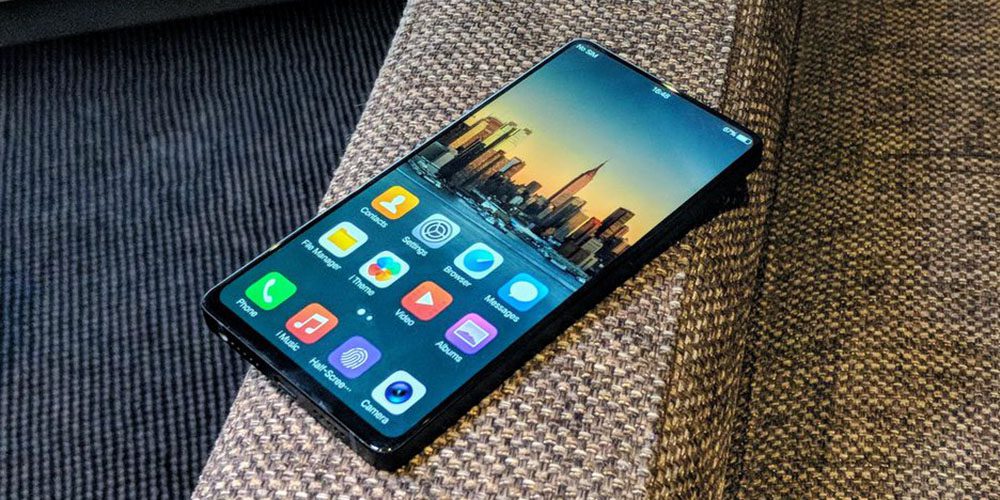Vivo is a common talk among the tech community recently, and they do have some things to boast about. Back at CES 2018 in Las Vegas, they introduced the X20 Plus UD. It is the first smartphone to feature a fingerprint sensor under the display. And on MWC 2018 in Barcelona, they introduced another concept smartphone – the Vivo APEX. Usually, concept devices are always there to display the new technology a certain company produced. But, those devices are also rarely released for us. The Vivo APEX could be the future in smartphones we’re going to, so let’s take a look at it!
Design
Starting with the design, the Vivo APEX has a beautiful, refined design. That is the case with any concept – the design is up and front, ready to amaze the consumers. The device features a glass design, which gives it a premium look and feel in the hand. On the front, you will see that the device is nearly bezel-less, with the bottom bezel being the only widest one. Vivo mentioned that if they reduced the bottom bezel as the others, the device’s screen-to-body ratio would have been about 98 percent. Nevertheless, it is still impressive to look at that gorgeous screen. Oh, and the fingerprint sensor from the X20 Plus UD? It is still here, but you can use it on a bigger scale – the whole bottom part of the screen can read your fingerprint. It is still using the same technology but implemented much better in my opinion.
Features
Since this is a concept phone, we won’t stand by the performance of the device. Instead, we’re going to see what the future for all smartphones is. So, as I mentioned earlier, we’re going to see again the fingerprint sensor under the screen. And because the space to register it is larger now, you have the option to register both fingers to unlock your device. On the demo, that experience was a bit slow, but since this is a concept, we’re expecting this to be improved further down the road. The larger screen means that you won’t find the sensor in their usual spots. Instead, they’re pushed to the top edge, and still work as intended. The speaker is also gone, replaced by the Screen SoundCasting Technology. Basically, it vibrates the screen to produce sound, and from the tests, it is incredibly loud and clear.
The front camera also had to be moved, and Vivo did not go with the notch. Instead, it pops out from the top when selected in the camera app. It is 8MP, which should be more than enough for selfies, but again, we’re here for the implementation. In my opinion, I like this better than a notch, but it could be more difficult for manufacturers to implement it. On the back there is a dual camera setup, but Vivo did not give out any details about them.
Final words
I’m surprised at Vivo about their determination in smartphones, and the Vivo APEX is certainly a nice concept device. This smartphone will for sure be an inspiration for other manufacturers to aspire to. I’m just hoping that it won’t remain a concept, but in most cases, it remains that way.
What are your thoughts on the Vivo APEX? Share them in the comments below.
